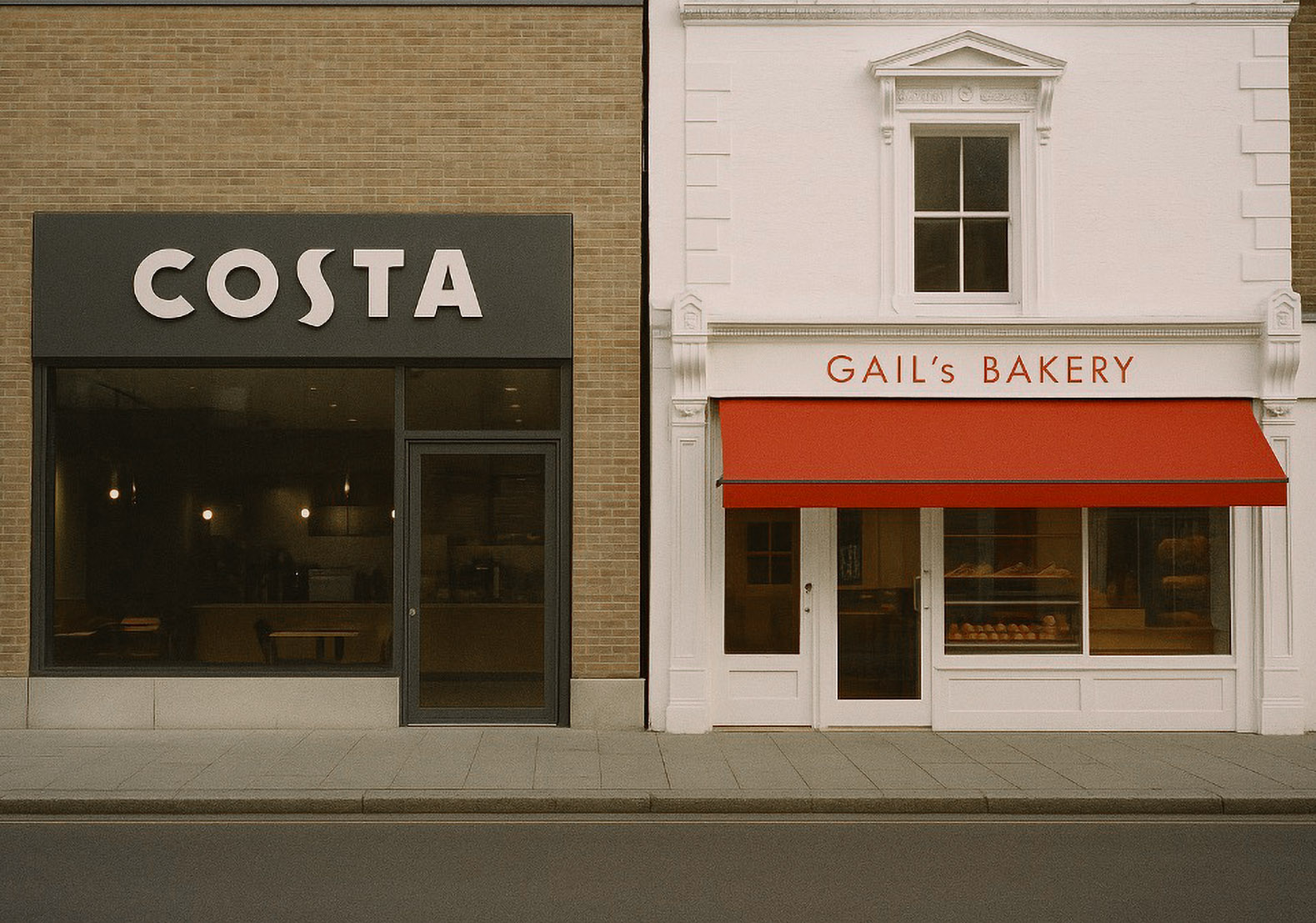From soaring coffee bean prices and rising energy bills to post-pandemic shifts in working habits and intensified competition from both independents and premium chains, Costa has been up against it. Their revenue remains below pre-acquisition levels, with recent financials showing a pre-tax loss of £9.6 million. Running a business at scale in this climate is no small task.
But here’s the real question: could stronger localisation and community connection have helped Costa weather these storms?
I’d argue yes.
My own experience came in a seaside town I know very well, where Costa opened a store in 2013, despite vocal community resistance, including a petition from over 600 residents.
Despite overcoming those odds from the outset, the store only operated for six years and never truly embedded itself in the community.
In chatting to local staff, they told me they weren’t empowered to adjust the offer or atmosphere to better suit local habits. They were full of brilliant ideas they just weren’t allowed to put into action. The brand presence remained uniform, centralised, and, crucially, a little out of touch with its surroundings.
Now contrast that with the success story that is GAIL's...
Gail’s doesn’t just serve coffee and pastries - it connects. Its teams are encouraged to form local partnerships, reduce waste through community donations, and shape their spaces to reflect neighbourhood needs.
"We’re a bakery that is very ‘neighbour-hoody" said Tom Molnar, Chief Executive in Business Leader "You have to care about the community."
Their approach isn't about sacrificing brand consistency; it's about humanising it. Gail’s has become the kind of brand that people want in their community, not one that arrives uninvited.
Of course, localisation isn't a magic fix for structural challenges like supply chain complexity or inflationary pressures. But it does help brands build resilience. When people feel seen, valued and listened to, they return, even when their spending tightens.
When local teams are empowered, they can respond creatively and meaningfully. When a brand becomes part of the community fabric, it earns loyalty that no national campaign can buy.
Costa had the scale, the infrastructure, the footprint but perhaps what it missed was the local heartbeat. And in today’s market, that heartbeat makes all the difference.
I hope the next suitor, whether Apollo Global Management, Inc. (The Restaurant Group), TDR Capital (popeyes & Stonegate Group) or someone else, keeps local in mind.














